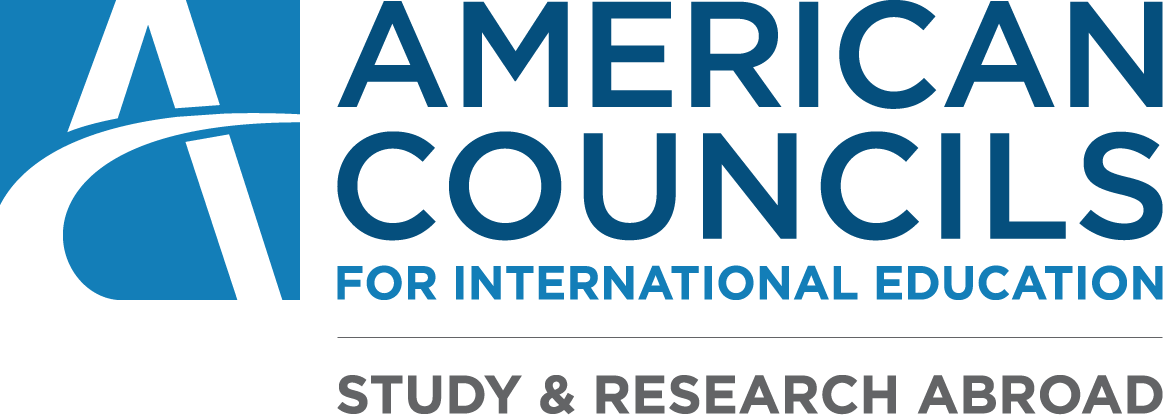Fulbright-Hays Scholarship Recipient Profile: Reid Harrison
Fulbright-Hays Group Projects Abroad scholarship recipient Reid Harrison discusses his experiences leading up to and during his participation on the Advanced Russian Language and Area Studies Program in Moscow. This story was originally shared on July 21, 2017.
When I began learning Russian during my first semester of college, I was unsure of whether I would continue learning the language or stop after the one-semester requirement for my degree. As it turned out, I went forth with Russian and am looking to further continue my studies in that area. I found that the language is very unique, and as my first professor described it, very much like formulating a math equation that will come naturally with practice just as mathematics will. After three years, including four months studying in Moscow, I can confirm this.
Even before enrolling in college, I knew that I was going to study abroad; the only questioned that remained was where. I truly hadn’t had a passion to go to anywhere specific until my professor had told me about his experiences in Russia when he was an undergraduate student, beginning Russian during his first-year at Bucknell, like I had. The thought of going abroad to Russia had constantly circulated my mind after hearing his endless stories, but was always more of an inconceivable idea than a realistic option. But as the time came closer for my decision, I realized that it was something that I really wanted to do. For my whole life I have always wanted to do things “differently” than the common person, that is do something that others might not always think to do or something that I may never get to do or experience again; Russia was just that for me.
On the plane to Moscow I was slightly nervous, as most people are traveling to a new place. I expected the people to be partially different, fitting the stereotype that many cultures place on the Russian people; however, to my gratitude I found them to be very approachable, relatable, and appreciative, particularly my host family. We arrived at Domodedovo Airport, an airport just south of Moscow, in late January and as expected, the weather was frigid. My first memory of exiting the airport was quite funny, as a man took his first step exiting his vehicle only to slip on ice and fall; he certainly was not the last person to slip on ice that we saw over the course of the semester.
The size of Moscow can be overwhelming at times, but it provides you with endless opportunities to experience and learn about the culture of the city and nation. Almost everyday, we were able to be active and engaged throughout the city. We visited many of Moscow’s seemingly limitless museums, visited the zoo, went to hockey and soccer matches, walked around parks, attended concerts, and ate very exotic food that we would never even think about eating in America.
Moscow is also a very accessible city in terms of traveling to, from or within the city. There are multiple airports, train stations, and an efficient metro. We were able to travel to numerous cities across Russia, including Saint Petersburg, Vladimir, Volgograd, Saratov, Samara, Kazan, Cheboksary, Kozmodemyansk, and Nizhny Novgorod.
Every time I was introduced to someone new in Russia, I was asked, “Why are you here?” For the first few occasions, I responded with first: to continue learning the language; and second: to have a different study abroad experience. As my time in the country went on, I was able to add more and more to my responses and truly be able to convince whoever I was talking to that I really meant what I was saying, hopefully providing them with a different perspective on their country than they are accustomed to.
My experiences each day were enriched as my knowledge itself was augmented. My plan to return to the country in the summer of 2018, when Russia hosts the World Cup, is largely due to my tremendous experience in the country. The combination of enhanced comprehension, developed friendships, and a unique and history-rich culture aided my development and provided me with a better perspective of the country and people than I had before going.
About Fulbright-Hays Scholarships from American Councils
American Councils for International Education has received a grant from the U.S. Department of Education, Fulbright-Hays Group Projects Abroad, to provide scholarships for advanced overseas Russian and Persian language study. Learn more about the eligibility requirements here.
About Fulbright-Hays Group Projects Abroad
The Mutual Educational and Cultural Exchange Act, commonly referred to as the Fulbright-Hays Act, was made law by the 87th U.S. Congress under President John F. Kennedy on September 21, 1961. Senator J. William Fulbright and Representative Wayne Hays introduced the legislation, which represents the basic charter for U.S. government-sponsored educational and cultural exchange. 2016 marks the 55th anniversary of this landmark legislation. More information about Fulbright-Hays Group Projects Abroad can be found here.
By: Reid Harrison
Program: Advanced Russian Language and Area Studies Program
Term: Spring 2017


